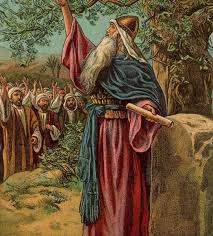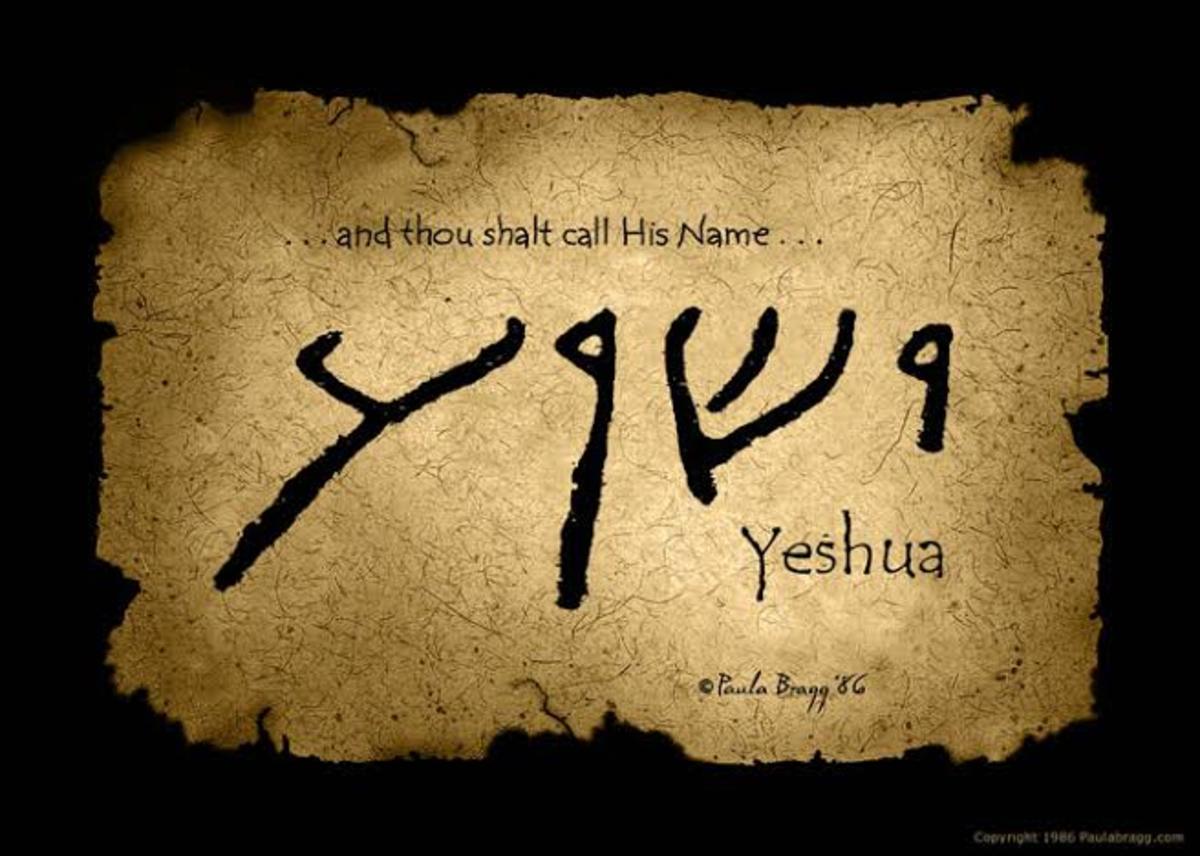Carry On - Jehovah-elohe abotkem

Joshua 18:1-10
The whole assembly of the Israelites gathered at Shilohand set up the tent of meeting there. The country was brought under their control, but there were still seven Israelite tribes who had not yet received their inheritance. So Joshua said to the Israelites: “How long will you wait before you begin to take possession of the land that the Lord, the God of your ancestors, has given you? Appoint three men from each tribe. I will send them out to make a survey of the land and to write a description of it, according to the inheritance of each. Then they will return to me. You are to divide the land into seven parts. Judah is to remain in its territory on the south and the tribes of Joseph in their territory on the north. After you have written descriptions of the seven parts of the land, bring them here to me and I will cast lots for you in the presence of the Lord our God. The Levites, however, do not get a portion among you, because the priestly service of the Lord is their inheritance. And Gad, Reuben and the half-tribe of Manasseh have already received their inheritance on the east side of the Jordan. Moses the servant of the Lord gave it to them.”. As the men started on their way to map out the land, Joshua instructed them, “Go and make a survey of the land and write a description of it. Then return to me, and I will cast lots for you here at Shiloh in the presence of the Lord.”. So the men left and went through the land. They wrote its description on a scroll, town by town, in seven parts, and returned to Joshua in the camp at Shiloh. Joshua then cast lots for them in Shiloh in the presence of the Lord, and there he distributed the land to the Israelites according to their tribal divisions.
Introduction
A little boy in the Cummings family told his parents after church that he didn't think the pastor liked him anymore. "Why do you say that?" the boy's mother asked. "Well," the boy replied, "all through the sermon the pastor kept saying that we need to get rid of our short comings - so that's why I don't think he likes me anymore." [Michael E. Hodgin. 1002 Humorous Illustrations For The Public Speaking, Grand Rapids: Zondervan, 2004, p. 253.]
Hopefully the boy was mistaken! But people do take their names seriously - and they should because it conveys a sense of heritage. A name provides a sense of who a person is.
Names Series
In the previous Hubs, we've been considering the value of names. In particular, we have been examining the compound names of God. These names teach us something about who God is, and at the same time they teach us who we are as God's people. Additionally, as we learn about who we are,we also learn how we should live.
So far in the previous Hubs, this series has taken us through the book of Genesis with the story of creation, where we learned of Jehovah-elohim - the mighty Creator. Also in Genesis, we saw Abraham and Isaac, and we learned of Jehovah-jireh - the LORD Who Provides.
We also spent some time in the book of Exodus, where we followed Moses and the Israelites during their trek from Egypt through the Sinai Desert to the Promised Land. Here we saw three names of God: Jehovah-rapha - our Healer, Jehovah-nissi - our Banner, and Jehovah-qanna, showing how God is Jealous for the integrity of God's name and for our welfare. In this Hub, we see yet another name and this time in the book of Joshua. Our reading in Joshua 18 reveals to us a compound name of God as Jehovah-elope abotkem: the LORD, God of our Fathers.
As we look at these compound names of God,we. See that sometimes the name is used several times in Scripture, but on other occasions, the name is used only once. The use of the name in Joshua is one of those times when the name is used only once. In fact, in this case, the name of God comes as a surprise in the narrative and as a result, is shown to be central to the message of the story. What was Joshua referring to when he called God the God of their fathers? To answer that, we need to take a quick walk through the book of Joshua itself.
Joshua Survey
The book of Joshua follows chronologically after the people of Israel came out of the Sinai Desert. The beginning of the book shows them poised to enter into the land that God promised to them. The entrance into this land after several centuries of living as expatriates in Egypt was the fulfillment of God's promises of both that God would create from Abraham a nation of people, and that the land of Palestine would be given to his descendants. The gift of the land was to be a blessing for God's people. The land, additionally was to be the way by which God would communicate God's love and grace to Israel and, indeed, to all people.
So the early chapters of Joshua tell the story of the miraculous ways in which the Israelites were able to defeat the enemies of God. In these chapters, we have fortress walls tumbling down, the sun standing still, fierce hail storms as ways that God is shown as fighting for the people and bringing them victory. In a sense, since God was fighting for them, and God was giving them the land, the people just simply needed to walk in and take it. There was work to be done, to be sure, but the land was theirs because it had been given it to them by God.
Starting in chapter, the narrative turns to the allotting of the sections of land to the various tribes of Israel. God had given them the Promised land, the people now needed to go settle in it. Time has transpired since they came into the land. Yet the job of settling the Promised Land was still unfinished. This is where our reading in Joshua comes in: In v. 2, we see that seven out of the twelve tribes were yet to have settled in their allotted land. In v. 3 Joshua chastises them: "Why are you taking so long to take possession of the land the LORD, God of Your Ancestors has given you?"
What had happened was that the majority of the tribes had become complacent. They were enjoying the success that they had won. They had become comfortable, and had given up in the task of claiming what God had given them. Why don't they have possession of the land yet? Is it because God had let them down? Is it because the task was too hard? No! The reason that the people didn't have possession of the land yet was that they simply hadn't gone in and taken it. No one can blame Jehovah if Israel did not have the land. Jehovah had already given it to them. Israel is reminded in this passage that possession of the land depended on their activity and their courage. Reference is made back to what had already been amazingly blessed through Hod's intervening power. Israel simply has not shown the necessary faith and courage to take the gift given them by God.
It is at this point in Joshua's speech that the name of God is used: Jehovah, the God of Your Fathers. The name is used as a way to remind the people of their ancestors. Their God is the same God of the Patriarchs - Abraham, Isaac and Jacob. God had acted powerfully in their lives, and God has acted powerfully in their own lives. Certainly, if God had acted in power before, the people can also depend on God to act on their behalf now. After this passage, the people got the message. From the point of chapter 18, the people get motivated again, finish the job and take possession of the land.

Carry On The Task
It seems to me that we often face a similar situation. I'm not saying that our lives have much of anything to do with ancient Israel - except for two things: We are human beings who struggle with life and God is still God.
God has blessed us with grace. Because of God's grace, we have our sins forgiven and are given power to live a victorious life. God loves us and wants to continue to bless us. But we so frequently fail to claim what God offers us. God offers us the blessings of a victorious life, and we instead live in defeat. How can that be? It is because we do not, in faith, claim God's blessings.
Why is this the case? There are a lot of reasons why we don't claim the blessings that God extends out to us - perhaps as many different reasons as there are different people. We struggle with busyness and countless distractions. We struggle with hardships, and it seems like life is just survival. We struggle with weariness, when we just feel too tired to move forward in God's grace. We struggle with laziness - in fact, the word that Joshua used implies that he was accusing them of being slack or lazy.
This situation of struggling to realize or claim the blessings that God offers reminds me of the song written by Christian folk singer and songwriter, Michael Card entitled, "Know You In The Now":
Echo of history
A light so many strain to see
The One we talk so much about
But rarely ever live it out
Could You tell me why
Was it for this You came and died
A once a week observance
When we coldly mouth Your words?
Lord I long to see
Your presence in reality
But I don't know how
Let me know you in the now
We should confess
We lose You in the busyness
We've made You in our image
So our faith's idolatry
Lord, deliver me
Break my heart so I can see
All the ways You dwell in us
That You're alive in me
Lord I long to see
Your presence in reality
But I don't know how
Let me know you in the now
God wants to be real and present in our lives, do we want to know God in that same way?
Michael Card performing "Know You In The Now"
- http://www.youtube.com/watch?v=LuQX0NXFZAM
Michael Card performing "Know You In The Now" and "Could It Be" from his CD, "Present Reality"
God Of Our Fathers (& Mothers)
There's a strong sense of the heritage of the faithful believers that went before us in this story. Faithful people of God went forward and did mighty things for God, will we in faith go forward too? God's people carried the torch of faith in the past, will we carry it on ourselves? The Israelites were reminded of the faithfulness of the people who came before them, and the power of God in their lives. They were then challenged to claim God's power to go forward themselves. We too are inheritors of a great heritage of the people who came before us. How will we carry on as people of God in this age?
So, I see two elements to this idea that God is Jehovah, God of Our Ancestors. The first is what we've already considered the reminder of the godly heritage passed down to us. We are inspired and motivated be the "great cloud of witnesses" as Hebrews 12:1 reminds us. Our spiritual fathers and mothers have bequeathed to us a spiritual heritage. Contained in that heritage is a challenge to carry on the heritage to keep it going.
But the second element to Jehovah-elohe abotkem is that of action. Immediately after challenging the people to finish the job of claiming the land, Joshua organized the people into teams to survey. the land so that they could divide it properly among the tribes. Words of faith are meaningless if they are not backed up by action!
Conclusion
A little girl called out to her mother from the next room, "Mommy, you know that vase in the china cabinet, the one that's been handed down from generation to generation?" "Yes, dear" the mother replied, "what about it?" "Well, Mommy, I'm sorry, but this generation just dropped it!"
Let's not "drop" it folks! Our God is Jehovah-elohe abotkem - the God of those who came before us. So let us carry on and pass on the tradition of faith to those around us and even on the the next generation. God goes with us all along the way of our journey.








